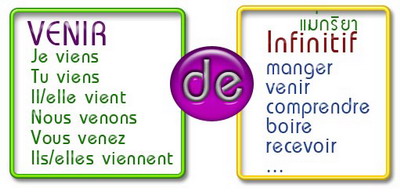When do I use futur simple or futur proche? It is formed with the verb aller (to go) conjugated in the present tense followed by an infinitive. What’s going to happen? The Near Future (Le Futur Proche ) is a way to talk about things that are going to happen. It indicates the intention to act in the future , and implies that the action is fairly immediate.
The verb ALLER means “to go”. I’m going to speak French. Toutes les déclinaisons de la conjugaison du verbe aller sont sur Le Monde.
Pour exprimer une action qui va se dérouler dans un avenir très proche du présent, on emploie le futur proche. THE ” FUTUR SIMPLE “ In grammar, “simple” doesn’t mean “easy”, it means that there is only one part (one word) in the verb. To master the use of aller as a French person woul both in terms of pronunciation and spee try training with audio recordings. Compound Tenses Some verbs also use the auxiliary verb être to form their passé-composé (past compound) and other compound tenses. You can use the futur proche , for an action which is imminent or in the near future.

The futur proche is is commonly used in spoken French (more than futur simple). You can also use futur proche , to express more distant. I F ormation du futur proche et du futur simple. Le futur proche se forme avec le verbe aller au présent de l’indicatif et le verbe à l’infinitif.
Elle va écrire une lettre. Nous allons commencer le cours. Vous allez faire un exercice. Je (écrire) un mail tout de suite. Conjugue les verbes au futur proche.
You will know it is the futur proche if there is a form of the verb aller (to go) in the present tense, followed directly by an infinitive. To form it, you take the form of aller (to go) that corresponds to your subject (person doing the action), and add an infinitive. It is used to describe actions that will happen very soon. Very soon” doesn’t have a clear definition, but as a rule of thumb, it’s something that will happen with certainty.
It’s not always really “ proche ” (“near.”) For example : On va aller au Japon dans ans. Ils vont habiter au Japon dans trois ans. Here is a quiz to test your knowledge of the Future Tense. Exemple: Je vais prendre mon train dans cinq minutes.

Re-write in futur proche. This activity was created by a Quia Web subscriber. Learn french proche aller futur near future with free interactive flashcards.
Choose from 5different sets of french proche aller futur near future flashcards on Quizlet. El Futuro Próximo en francés Ejercicios. Exercices Le Futur Proche Exercices. Cómo formar los futuros próximos en francés? Cómo se dice yo voy a nadar, ella va a terminar, nosotros vamos a cenar, etc.
Was ist das Futur composé? Das Futur composé, auch Futur proche genannt, verwenden wir für Handlungen in der nahen Zukunft. Die Betonung liegt darauf, dass bereits eine Absicht besteht und die Handlung in Kürze stattfinden wird. It is translated as “going to” and mirrors very closely how it is used in English. Similarly to English, the verb aller (to go) can be used as an auxiliary verb to create a near-future tense (le futur proche).
In the French language we have le futur proche which means close et le futur simple which means simple. Contrary to their names, le futur simple is not simple et le futur proche is simple (easy). Additional materials by Francisco Villatoro, Ruth Smith and Jacky Tidbury.

Irregular verbs, auxiliary verbs, conjugation rules and conjugation models in French verb conjugation. Die Zukunftsform „ Futur proche ” - auch Futur composé genannt - wird dazu verwendet, Dinge zu beschreiben, die in unmittelbarer Zukunft stattfinden werden oder die mit großer Sicherheit geschehen werden. Wie ihr schon wisst, bedeutet „ proche “ so viel wie „nahe“ oder „baldige“.
La conjugaison du verbe aller sa définition et ses synonymes.
Geen opmerkingen:
Een reactie posten
Opmerking: Alleen leden van deze blog kunnen een reactie posten.